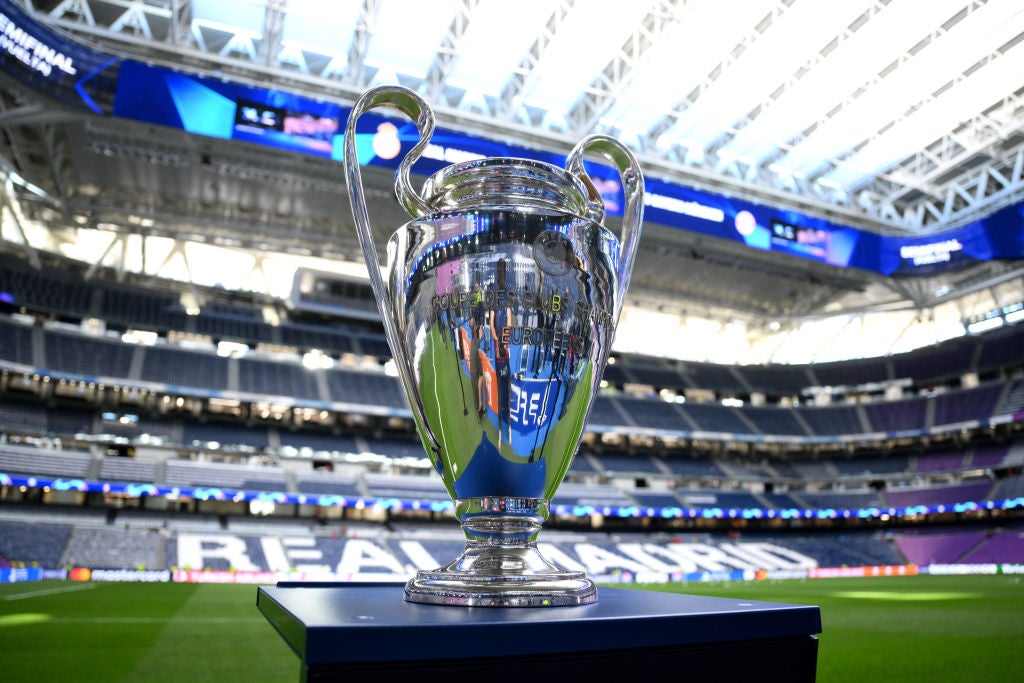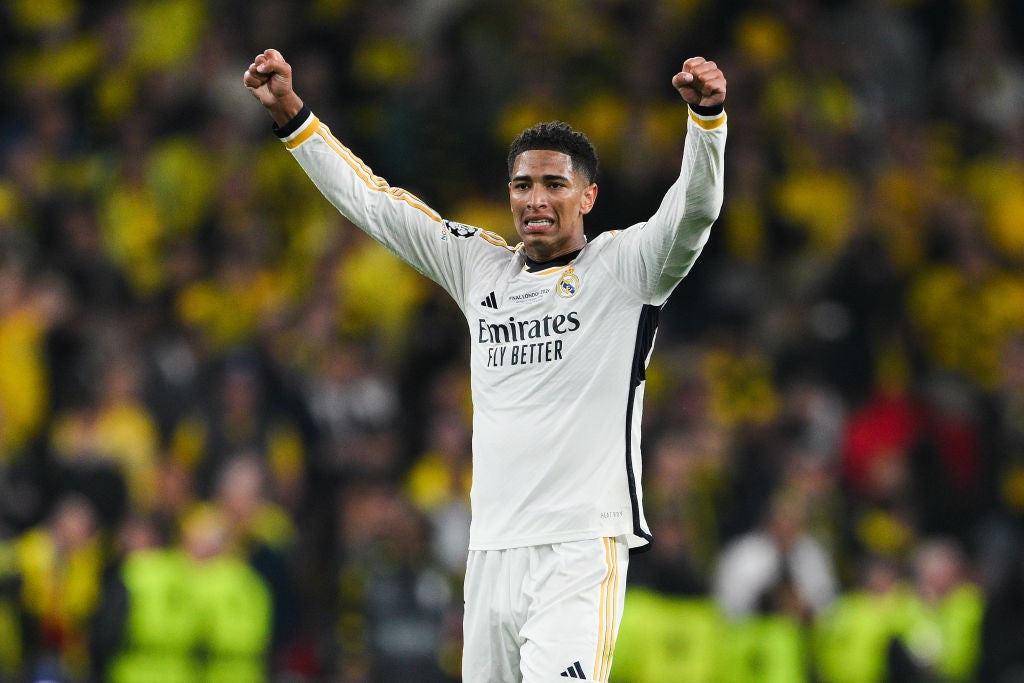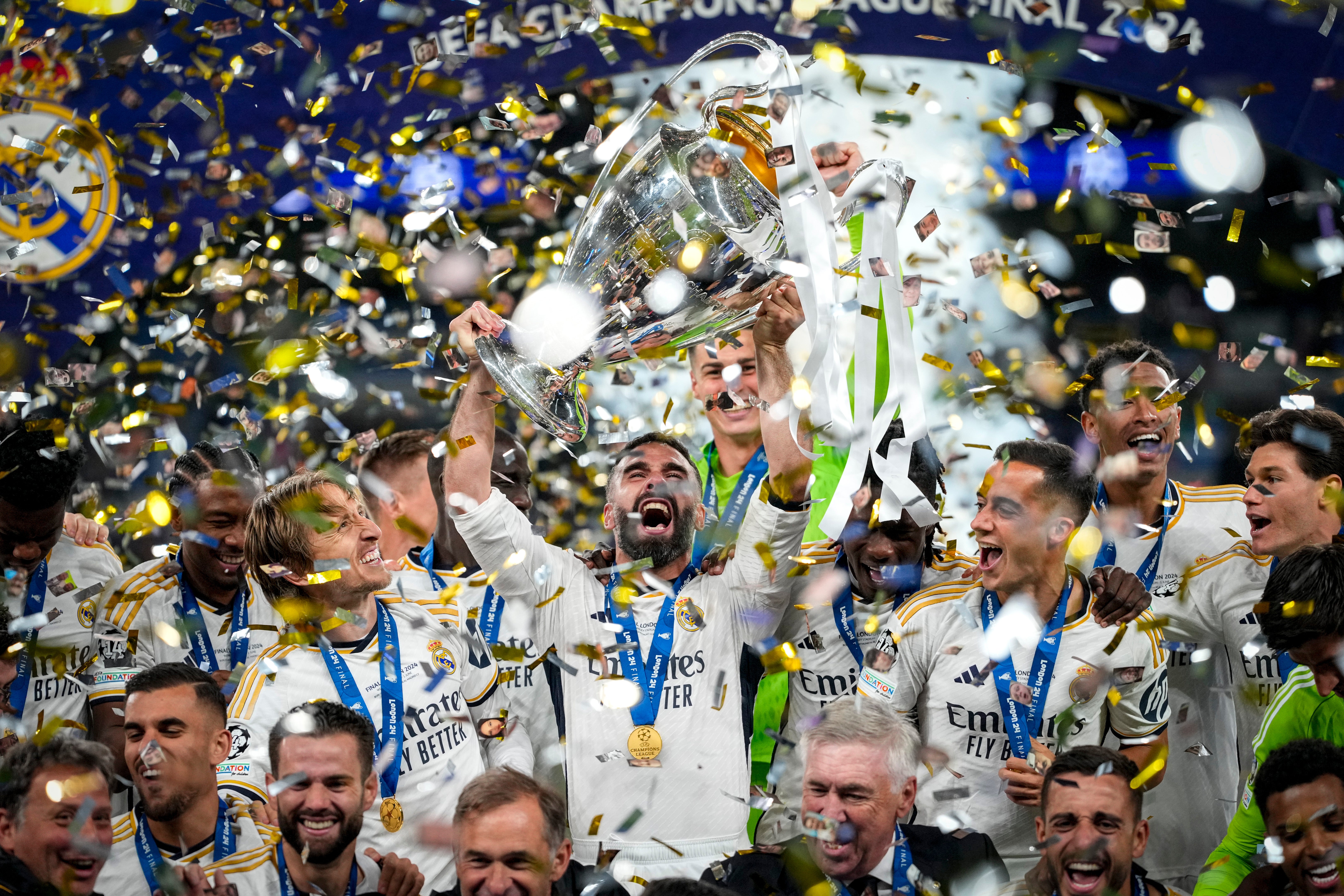The real reason behind the Champions League’s new format
With Uefa having adopted the Swiss model in a bid to revitalise European football’s biggest competition, Miguel Delaney explains why mystery surrounds the change and the likelihood of it succeeding


As star players approach the new Champions League season this week, there are still many who don’t get the new format. Uefa even joked about it in its promotional video at the draw. The players are far from alone in this, with plenty of fans and even club executives having the same discussion.
It could be argued this is a real problem for the basic functioning of a competition, not to mention how it represents the needless complication of a sport that is historically popular due to its simplicity. There is still hope within Uefa that everyone will understand once the reality of the games and the table take shape in front of their eyes. That’s quite a rare justification but then, this whole change represents quite a leap. It also represents the start of an era where our understanding and expectations of how football works will be completely scrambled.
The new Champions League is only the first step in a cycle that will see changes to most major parts of the calendar. The structural and psychological architecture of the game is being rearranged. The World Cup is going in a similar direction, by expanding to 48 teams, at the same time as Fifa is introducing a new expanded Club World Cup. The very fact the European season runs right through the “winter break” of January is already a major difference.
In the case of the Champions League’s specific structure, a classic format of eight groups of four with the top two going through is now ending after 25 years. Despite its simplicity, the format had become predictable in recent years and lost some of its magic. It is being replaced by something that has never been seen in elite football before, which is 36 teams all put into one giant table but where each club only has eight fixtures to try and reach the top 24 places. A super league, if you will.
That description is all the more pointed given the genesis of this format. It was signed off the day after the actual Super League was launched in April 2021, having come out of negotiations where the threat of that project was weighed over every phase of the discussions. That's how big clubs always got what they wanted.
That has led to questions over why Uefa didn’t just scrap it once the Super League was defeated. There was nevertheless an acceptance that the Champions League needed a refresh, as well as a realisation that the most lucrative clubs still needed to be kept on side.
And, as labyrinthine as this format might seem right now, it could have been worse. Andrea Agnelli, the former Juventus chairman who was a huge driver of the Super League, wanted a bloated competition with four groups of eight. As many as 24 teams would have kept their places for the next season. Uefa also toyed with a double group stage, where four groups of four followed four groups of eight, like between 1999 and 2003. There were similar plans for six groups of six, as well as different versions of this format with 10 and 12 matchweeks.

The current structure was chosen because it “modelled” the best of all these ideas on four key factors: “volume and timing”, “quality”, “meaning and excitement” and “domestic relevance”.
Some of those were necessarily subjective. Commercial considerations obviously carried weight, especially as regards a greater volume of games, more big matches and four additional teams potentially representing “new markets”.
Uefa and its competition partners, TEAM marketing, are optimistic it will work well. It has already done so in examples like Romanian domestic competition.
There is a fair caveat that expansion isn’t automatically a bad thing, even if it’s for the wrong reasons. The reasons here are financial, of course, and that in a few different ways.
Uefa felt the old format could do with a refresh because it was going stale, but that was mostly due to financial disparity. Fifteen of the 16 wealthiest clubs qualified on over 90 per cent of occasions. You only have to look at how often we’ve recently seen fixtures like Real Madrid vs Manchester City, Liverpool vs Real Madrid and Bayern Munich vs Manchester City. There was then the corresponding need to keep those same clubs happy, as they sought more and more income. Uefa has drastically reduced the money that goes to everyone else over 30 years.

Rather than directly address these issues, though, the governing body has just evaded them. The groups became boring, so it just got rid of them. There were too many dead rubbers, so it has instead staggered the fixtures and the league.
The only way you automatically qualify for the knockout stages is by finishing in the top eight. Positions nine to 24 send you to another play-off, and there is then Wimbledon-style seeding based on league position for the last 16. The latter is to increase incentives for later games.
This is where we get to the key question of whether this can actually work as a competition, let alone how it works.
There is admittedly an intriguing new vitality and variety to the league stage. The fact everyone plays eight different teams fosters a sense of openness. That is complemented by the end of pot protection, so all clubs have a similar draw. The top-seeded teams all get two matches each against clubs perceived at the same level, in a way that was impossible with the old Champions League.

There could be genuine jeopardy to that, too, since it’s possible that Barcelona vs Borussia Dortmund on 11 December is a battle to settle eighth or ninth place. Less wealthy clubs also have more of a chance to qualify. Celtic, for example, are perceived to have the best draw in facing big matches like Aston Villa while eyeing a place in the top 24.
That all theoretically sounds good, especially the idea of the big clubs fighting over seeding positions later on. Much is going to be made of the glamour week in early November which features Liverpool vs Bayer Leverkusen, Real Madrid vs Milan, Internazionale vs Arsenal and PSG vs Atletico Madrid. That has been the aim.
It’s just that we won’t know for sure until we see the reality as the competition is played. Liverpool vs Real Madrid in late November looks like it could be huge, sure, but would it really matter that much if both clubs are by then in fourth and fifth, respectively? Would they be all that bothered by where they finish, since they wouldn’t even know who is on the other side of the draw?
It’s also going to be close to impossible for any wealthy clubs to finish outside the top 24, which is sort of the point. And that after a massive 144 games, which will eliminate just a third of the field.

The only cost to finishing outside the top eight is avoiding two extra play-off games. That matters in a calendar as congested as this, sure, but it just isn’t the same as the threat of sudden death that really enlivens sport.
It could be good. Or it could just be more games of less consequence, as has become a habit in modern football.
We won’t know until it starts, at which point we’re all on a voyage of discovery.
The final destination is still clear enough, though. No one with a revenue of less than €460m has won the Champions League in over a decade, and there aren’t many clubs like that. This is unlikely to change that. This is likely to make that dynamic even worse.
Some might argue that’s exactly how it’s supposed to work.
Join our commenting forum
Join thought-provoking conversations, follow other Independent readers and see their replies
Comments


Bookmark popover
Removed from bookmarks